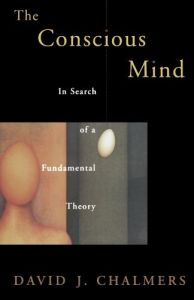Join getAbstract to access the summary!

Join getAbstract to access the summary!
David J. Chalmers
The Conscious Mind
In Search of a Fundamental Theory
Oxford UP, 1997
What's inside?
Your experience of consciousness cannot be explained by physical reasons alone – so how can it be explained?
Recommendation
Philosopher and author David J. Chalmers makes an ambitious, daring attempt to expand the understanding of consciousness. Although he admits that his sympathies are with materialism, he concludes that materialist (physical) explanations cannot account for the existence of consciousness. His theory of consciousness is based in the natural world, but he proposes that consciousness has both physical and nonphysical properties. He suggests that a set of psychophysical laws are needed to explain the how and why of consciousness. Although parts of this book are densely technical and call for readers with a thorough background in mathematics, physics and philosophy, Chalmers has taken pains to make his material as accessible as possible to the average well-educated person. He even puts asterisks beside sections that lay readers are likely to find too daunting, and notes those sections general readers might most productively read, skim or ignore. getAbstract suggests this book to well-schooled readers who are interested in the philosophy of the mind, cognition or psychology.
Summary
About the Author
David J. Chalmers is professor of philosophy and director of the Centre for Consciousness at the Australian National University. A Rhodes scholar, he formerly taught at the University of Arizona. He has compiled what could be the largest bibliography on the philosophy of mind and related fields with some 8,000 annotated entries topically organized.

















Comment on this summary